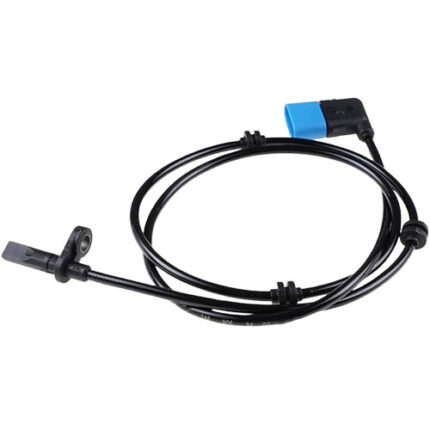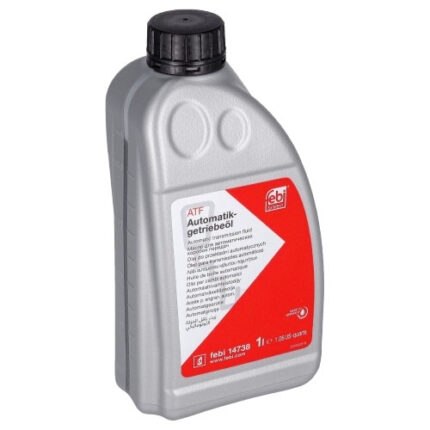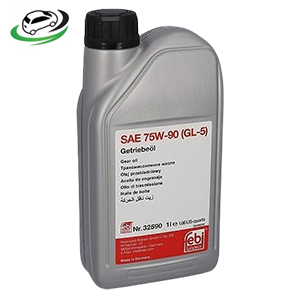-13%
Get Manual Transmission Oil SAE 75W-90 GL-5 1 Litre 32590
Transmission oil, also known as transmission fluid, plays a crucial role in the smooth operation of a vehicle’s transmission system. It serves multiple purposes, ranging from lubrication to cooling and even facilitating gear shifting. Understanding its advantages and recognizing signs that a car needs a transmission oil change is vital for maintaining vehicle performance and longevity.
Advantages of Transmission Oil:
- Lubrication: One of the primary functions of transmission oil is to lubricate the various moving parts within the transmission system. This lubrication helps reduce friction and wear between components, ensuring smoother operation and prolonging the lifespan of the transmission.
- Heat Dissipation: Transmission oil also helps dissipate heat generated during the operation of the transmission. As the gears mesh and components move, friction generates heat, which can damage the transmission if not properly managed. The transmission fluid absorbs heat and carries it away from critical components, helping to maintain optimal operating temperatures.
- Seal Conditioning: Transmission oil contains additives that help condition and maintain the integrity of seals and gaskets within the transmission system. This prevents leaks and ensures that the transmission remains properly sealed, preventing fluid loss and potential damage.
- Gear Shifting: Transmission oil plays a vital role in facilitating smooth gear shifting. It provides hydraulic pressure to actuate the various clutch packs and bands within the transmission, enabling seamless transitions between gears. Fresh transmission fluid ensures that these hydraulic mechanisms operate effectively, preventing gear slippage and transmission malfunctions.
- Corrosion Prevention: Transmission oil contains additives that help protect metal surfaces from corrosion and oxidation. By forming a protective barrier on internal components, the transmission fluid helps prevent rust and corrosion, which can compromise the integrity of the transmission over time.
- Improved Performance: Regular maintenance of transmission fluid ensures optimal performance of the transmission system. Clean fluid ensures that components operate efficiently, maximizing power transfer and fuel efficiency. It also reduces the risk of transmission-related issues such as slipping gears or delayed shifting.
Signs a Car Needs Transmission Oil:
- Difficulty Shifting Gears: If you notice difficulty or hesitation when shifting gears, it could indicate low transmission fluid levels or degraded fluid quality. Transmission fluid provides the necessary hydraulic pressure for smooth gear changes, so any issues with shifting may be a sign that the fluid needs to be replaced.
- Slipping Gears: Slipping gears occur when the transmission momentarily loses power or fails to engage properly. This can manifest as a sudden increase in engine RPM without a corresponding increase in vehicle speed. Slipping gears can be caused by various factors, including low transmission fluid levels or degraded fluid quality, which affect the transmission’s ability to maintain adequate hydraulic pressure.
- Unusual Noises: Whining, buzzing, or clunking noises coming from the transmission area can indicate problems with the transmission fluid. Contaminated or degraded fluid may not lubricate the transmission components effectively, leading to increased friction and abnormal sounds during operation.
- Leaking Fluid: Visible leaks or puddles of reddish-brown fluid underneath the vehicle are a clear indication of a transmission fluid leak. Leaks can occur due to damaged seals, gaskets, or transmission pan, leading to a loss of fluid and potential transmission damage if not addressed promptly.
- Burning Smell: A burnt odor emanating from the transmission area can indicate overheating or degradation of the transmission fluid. Overheated fluid can lose its lubricating properties and may cause damage to transmission components if not addressed promptly.
- Dashboard Warning Lights: Some modern vehicles are equipped with sensors that monitor transmission fluid levels and quality. If the vehicle detects an issue with the transmission fluid, it may illuminate a warning light on the dashboard, indicating the need for inspection and possibly fluid replacement.
Follow us on Facebook for more Parts.






